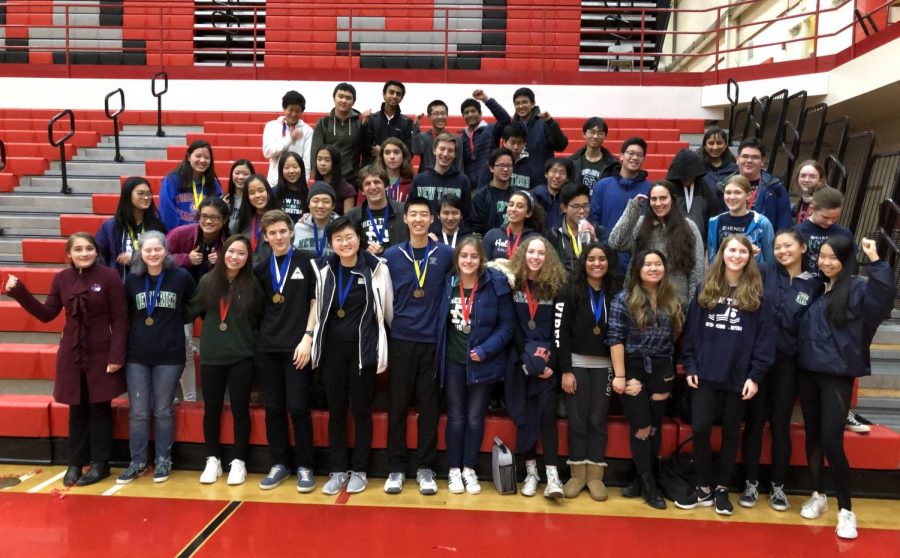Harvard lawsuit reveals emphasis on academic clubs
College’s admissions value commitment to academics outside of class
In light of the racial discrimination case against Harvard University, the school has been required to release documents detailing their admissions process. Part of the Reading Procedures, which Harvard uses to evaluate applicants, ranks students on a numbered scale in categories ranging from “Academic” to “Extracurricular, Community Employment, Family Commitments,” with 1 representing the most qualified.
According to PrepScholar, a college admissions and test prep guide, only about 12 applicants in a pool of about 30,000 can expect to score all 1s on their application.
For the 2015-2018 classes, most of the 5,525 students attained an overall score of 2+/2/2-; in comparison, all 94 students who got a 1 were admitted into the college, and legal documents confirm that those who receive a 1 overall are always accepted.
Athletics have consistently been seen as an important aspect of the admissions process, and by freshman year, many students have chosen a sport to demonstrate commitment on their application.
Senior Marilyn Gao decided on rowing as her sport of choice due to the multitude of recruitment opportunities and athletic scholarships.
“Rowing has taught me a lot about my physical and mental limitations and also a lot about teamwork and how to work hard. It’s also great because it’s your extra ‘edge’ to get you into a school,” stated Gao.
But in Harvard’s extracurricular category on the Reading Procedures, the rating for a 1 stands for “unusual strength in one or more areas. Possible national-level achievement or professional experience. A potential major contributor at Harvard. Truly unusual achievement.”
Since there’s an entirely separate section for athletics, this section displays the school’s inclination towards more academic activities such as debate or Model UN.
“You have to show these schools that you’re academically questioning. They want inquisitive, thinking students who are asking questions, and I think that’s what they’re getting many times from students who do activities such as Science Olympiad, when it isn’t just rote memorization for an exam,” said PHSC Department Chair James Conroy.
Science Olympiad certainly sets itself apart from other competitive extracurriculars due to its heavily academic nature, competing locally and nationally, although it places the same emphasis on collaboration as any other team would; each person’s success depends on their event partners and other teammates.
“We strive to fulfill the responsibilities we have to one another because we care about the collective’s success, and I find that to be special in a competition whose premise, on the surface, is simply to win the most medals,” said senior Edward Seol, a cohead of the Science Olympiad team.
Seol has found that being a cohead has given him the chance to hone his ‘leadership skills in crafting a vision for the team and handling adversity, drama, and immense pressure.”
Senior Emily Dale, who participates in math team, thinks that other non- academic extracurriculars can be just as important and agrees with the partiality towards clubs.
“Academic clubs are a way to show if you’re extremely smart, and that’s one of the things Harvard wants. Plenty of people have straight As in math or science, but only a few can win at a competition,” said Dale.
Yet no matter the extracurricular, all schools, not just Harvard, want students who are well-rounded. “With so many highly achieving students, colleges should be valuing recommendations and personal qualities that truly distinguish one student from another in a way that is not visible on a transcript or a list of activities,” said Seol.
In Harvard’s Reading Procedures, a 1 in personal qualities was “outstanding,“ a 2 “very strong” and 3 “generally positive.” It’s difficult to say what distinguishes a “generally positive” from an “outstanding.”
“As you go down in selectivity, you have to make more hairline decisions. It gets to be so subjective. Everyone reads the essays differently,” said Conroy. “It’s not a science, it’s definitely a stab in the dark. You don’t just have a formula because you’re dealing with human beings who are different.”
Seol shared a similar opinion, explaining that he sees the logic behind the subjectivity as valid.
“I do realize that Harvard sees thousands upon thousands of applicants who do these same activities, so I can understand why exceptional athletic or personal qualities become significantly more important than these academic teams.”
But often times, academic clubs can be the perfect outlet for students to connect their personal interests to the topics that they’re interested in pursuing in the future.
“Being able to tell your life story and interests is important, but in the end it needs to connect to your original purpose of actually applying to college to study something,” said senior Edward Lee, who has been a member of math team since sixth grade.
Like other students, he originally joined because his mom pushed him to, but said that “It was because of legitimate interest that I developed that compelled me to continue with math team into high school.”
The focus on school-related extracurriculars makes sense, as students who are interested in academics in high school are most likely self-motivated to succeed in their classes at college.
At the same time, senior Allison Elli believes that “in admissions, it’s very important to focus on not the test scores, but the essays and what the student does in their free time.”







































